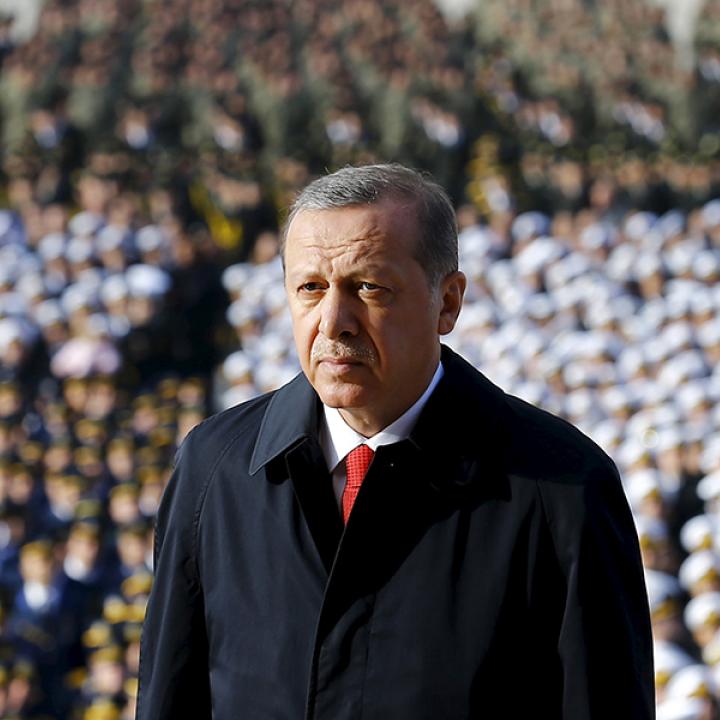
- Policy Analysis
- Articles & Op-Eds
Erdogan Enters Turkish Elections with More Power but Less Support

The president will probably become even more authoritarian in the coming months, knowing that a majority of citizens would vote him out in a fair election.
Opinion polls suggest a tight race in Sunday’s Turkish elections, when President Recep Tayyip Erdogan faces off against two opposition candidates. The winner will enter office with new presidential powers, granted by an April 2017 referendum.
The big picture: The race has been an unfair one: Votes will be cast under a state of emergency, the government is censoring online content, and pro-Erdogan businesses control around 90% of the national media, which has covered Erdogan more often and more favorably than his opponents. Erdogan needs these advantages: he now represents the status quo in Turkey, and has few enticements to offer the electorate.
The backstory: Erdogan entered Turkish politics in the 1970s, crusading against the establishment and branding himself a people’s politician. When he came to power in 2002, he promised to make Turkey freer and more equal. Although he has since delivered strong economic growth, his recent record has been more mixed:
- Erdogan ended discrimination against pious citizens, but then turned the table: The government now discriminates against those who don’t identify with the conservative Sunni Islam he practices.
- He has extended the state of emergency set in the aftermath of a failed 2016 coup 7 times, using it to oppress liberals, Kurdish nationalists, and other groups. A number of people he’s had arrested have died in jail while waiting to appear in court. There is little doubt he would face prosecution after losing the elections.
- With Turkish democracy nosediving, Freedom House changed its classification last year to “Not Free.” This is why, when he announced his election manifesto on June 7, he promised free cake and coffee rather than further liberties.
Erdogan has now fully assumed the role of what he set out to fight—the establishment that punishes—and his brand is eroding. Once respected, Erdogan is now trolled on social media, especially by the younger half of Turkey’s population, most of whom have known no other leader.
The bottom line: Erdogan is not likely to take recent political indicators as a warning sign to change course. In fact, he will probably become even more authoritarian after Sunday, knowing that a majority of his citizens no longer support him and that when left to true democratic devices, Turkish society will vote him out. The bad news for Turkey is that the Erdogan miracle is over; the worse news is that there seems to be no escape from him.
Soner Cagaptay is the Beyer Family Fellow and director of the Turkish Research Program at The Washington Institute, and author of The New Sultan: Erdogan and the Crisis of Modern Turkey.
Axios



